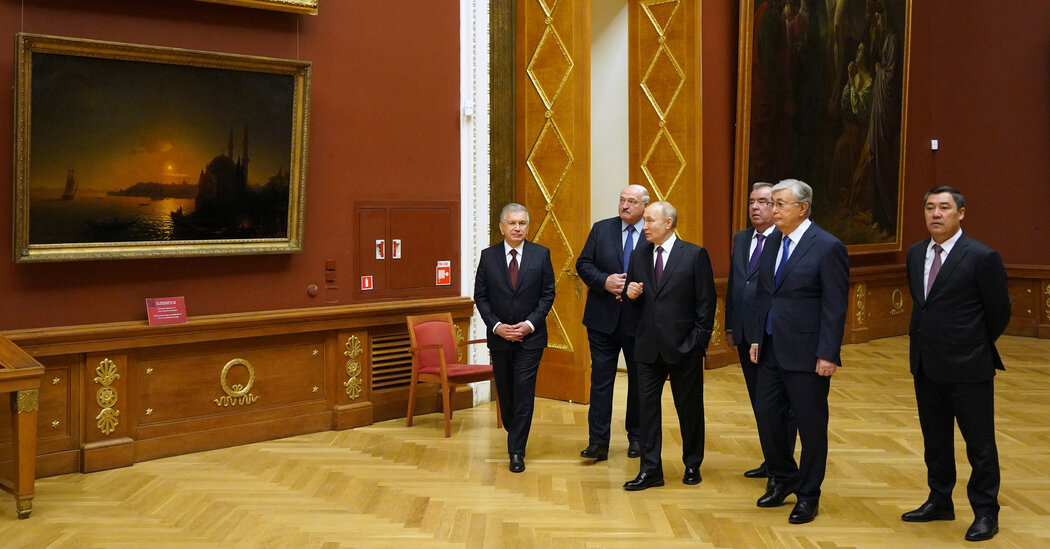Alan Kohler, a retired FBI Special Agent with decades of experience in counterintelligence, is sounding the alarm about the ongoing intelligence threat posed by Russia. In a recent interview, Kohler emphasized that the United States may have been too focused on counterterrorism efforts post-9/11 and, in doing so, has neglected the long-standing and evolving intelligence threats from Russia. Kohler argues that dismissing Russia as a mere remnant of the Cold War would be a grave mistake with potentially catastrophic consequences for national security.
A Shift in Focus After 9/11
In the years following the 9/11 attacks, U.S. national security priorities shifted dramatically. The Global War on Terror (GWOT) became the central focus for intelligence agencies, law enforcement, and military operations. As a result, counterterrorism efforts were ramped up, with a particular emphasis on combating organizations like Al-Qaeda and later the Islamic State (ISIS). For many, this focus meant that adversaries like Russia, which had been seen as a geopolitical threat during the Cold War, were somewhat sidelined in favor of the urgent and immediate threat posed by Islamic extremism.
Kohler, however, warns that this shift in attention created a dangerous blind spot. He argues that in the aftermath of 9/11, Russia’s intelligence operations—which have long targeted U.S. political, military, and economic interests—did not slow down. In fact, he suggests, Russia’s intelligence apparatus has become more sophisticated, aggressive, and, in many ways, more challenging to detect.
Russia’s Evolving Threat
Since the end of the Cold War, Russia has maintained a robust intelligence network aimed at infiltrating U.S. institutions, corporations, and government agencies. Kohler, who spent years investigating foreign intelligence activities, points to Russia’s increasing cyber capabilities, its disinformation campaigns, and its growing influence operations as key components of its ongoing threat to U.S. national security.
In particular, Russian intelligence agencies, such as the GRU (military intelligence) and FSB (Federal Security Service), have been involved in high-profile incidents, including:
- Election interference: The 2016 U.S. presidential election saw an unprecedented level of interference from Russian actors, with Russian operatives using social media platforms, hacking, and cyberattacks to sow division, spread misinformation, and undermine public trust in democratic processes.
- Cyberattacks on critical infrastructure: Russian hackers have targeted U.S. energy grids, election systems, and government networks. The SolarWinds hack in 2020, attributed to Russian-backed hackers, compromised the networks of multiple U.S. agencies and private companies, affecting everything from federal departments to cybersecurity firms.
- Disinformation campaigns: Russia has been accused of using its state-controlled media outlets, along with social media bots and trolls, to manipulate public opinion and spread false narratives across the globe. These tactics have been used to interfere not just in U.S. elections, but also in political processes in other democracies, including in Europe.
The Risk of Underestimating Russia
Kohler’s cautionary words come at a time when many in the intelligence community and the U.S. government have started to refocus on Russia’s long-term strategy. He suggests that Russia’s intelligence operations remain among the most sophisticated in the world. The Kremlin, under Vladimir Putin, has consistently invested in developing new techniques and methods to advance its geopolitical ambitions and weaken its adversaries, especially the U.S.
Moreover, Kohler points out that Russia’s use of “hybrid warfare”—a combination of conventional military tactics and non-traditional methods such as cyber warfare, espionage, and political subversion—makes it even more difficult to detect and counter. Russia’s intelligence operations are often less direct than those of traditional adversaries, involving a combination of subtle influence and covert actions that can have long-lasting effects without being immediately apparent.
Kohler argues that dismissing Russia’s intelligence threat would be “unwise for all of us to do.” While much of the focus in recent years has shifted toward the rise of China as a global adversary, Kohler believes that Russia’s intelligence operations should never be underestimated, particularly given their well-established history of espionage and subversion.
Intelligence Cooperation and Strategic Awareness
Kohler’s comments highlight the need for increased intelligence awareness and interagency cooperation in addressing threats from Russia. The FBI and other U.S. agencies must continue to focus on tracking and countering Russian influence, particularly in the digital age, where cyber capabilities and information warfare have become powerful tools in international relations.
At the same time, Kohler suggests that the U.S. government should continue to strengthen its diplomatic and defense ties with key European allies, especially as Russia remains a major threat to the political and economic stability of the region. NATO and the European Union will need to work closely together to bolster their collective defense capabilities and counter Russian influence.
The Broader Geopolitical Landscape
Kohler’s warnings also come at a critical time for U.S. foreign policy. The Ukraine conflict, which began in 2014 and escalated in 2022 with Russia’s full-scale invasion, has brought the issue of Russian aggression back to the forefront of global security concerns. The West’s response to Russia’s military actions in Ukraine, including sanctions and military aid to Ukraine, has once again brought Russia into the spotlight as a primary geopolitical adversary.
The U.S. has been engaged in a careful balancing act, supporting Ukraine’s sovereignty while maintaining diplomatic and economic pressure on Russia. Kohler’s remarks remind us that while the U.S. intelligence community has been focused on counterterrorism and countering China’s rise, it is essential not to lose sight of Russia’s cyber espionage, influence operations, and military ambitions.
Looking Ahead: A Renewed Focus on Russia
As the geopolitical landscape continues to evolve, Kohler’s warnings about Russia should serve as a reminder that intelligence threats are not static—they evolve with the times, leveraging new tools and technologies to achieve strategic objectives. The United States must stay vigilant and proactive in its efforts to counter these threats, ensuring that it does not repeat the mistake of underestimating Russia’s intelligence capabilities.
For policymakers and intelligence professionals, Kohler’s words underscore the need for strategic foresight and continued investment in both human intelligence (HUMINT) and cyber capabilities to address these complex, multifaceted challenges.



